Second-Hand iPhones Sell For Over $2,000 In Iran
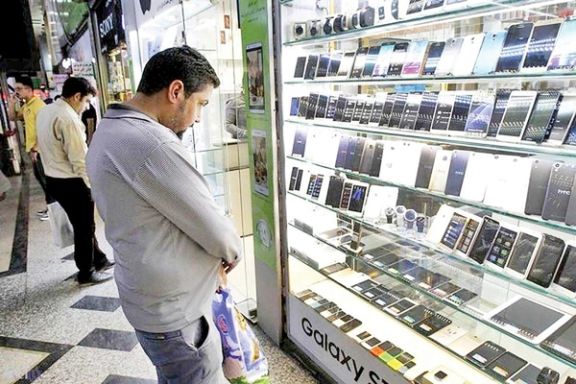
Imported second-hand iPhones are selling for more than 2,000 US dollars in Iran, an Iranian official has admitted.

Imported second-hand iPhones are selling for more than 2,000 US dollars in Iran, an Iranian official has admitted.
The price of the devices – brought in from UAE – is due to an import ban on the iPhone 14 and production having stopped on the iPhone 13, according to Hossein Rouzbeh, a director of the Cell Phone Importers Association.
In January, Iranian media reported that the Islamic Republic spent $9 billion in foreign currency to import mobile phones over 33 months, with a large slice going on Apple devices.
According to Tasnim news agency, about $2.3 billion was spent on importing just two million “luxury” phones – mainly from US brand Apple. This is less than five percent of the total number of phones bought by Iranians.
The rial’s plunge against the US dollar in recent months has exacerbated chaos in several of Iran's major markets and brought many businesses to near standstill.
The price of mobile phones rose sharply with many retailers preferring to hold on to their stock in anticipation of a further fall of the rial.
In a letter addressed to the Islamic Republic of Iran Customs Administration (IRICA), Iran's Ministry of Industry banned the import of Apple's iPhone 14 and higher models from February 20, 2023.
"iPhone 14 and higher model mobile phones will no longer be registered in Iran and related instructions will be announced at the crossing points of the country,” said the letter.
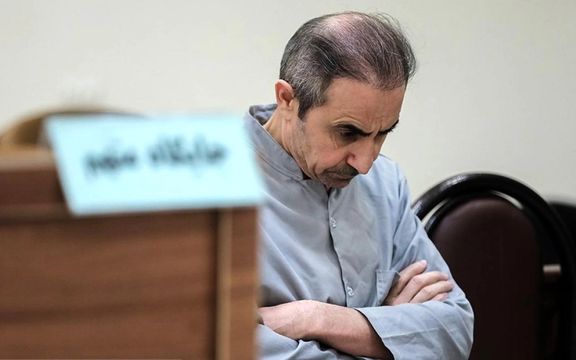
Iran’s execution of a political activist has sparked global outrage amid fears of further deaths in Tehran’s killing spree.
Habib Chaab, 49, former leader of the Arab Struggle Movement for the Liberation of Ahwaz (ASMLA), was hanged on Saturday morning, weeks after his sentence for “corruption on earth” was confirmed by the judiciary.
The Swedish-Iranian dual national was tried by a revolutionary court in Tehran in December. Denied his own choice of defense attorney, he was represented by a court-appointed lawyer. He had been forced to make self-incriminating confessions.
On Sunday, UK Foreign Secretary James Cleverly said he was “appalled”, adding: “The UK strongly opposes the death penalty. We call on the regime to stop all executions, now.”
On Saturday, the European Union had condemned “in the strongest terms” the execution of Chaab, reiterating strong opposition against the application of capital punishment in any circumstance, adding: “The European Union calls on Iran to refrain from any future executions and to pursue a consistent policy towards the abolition of capital punishment.
"The increasing number of EU and dual EU-Iranian nationals arbitrarily detained in Iran, the restrictions imposed on consular access to EU nationals, the denial of consular protection and the right to a fair trial, stand in direct violation of international law.”
Several European officials, including Swedish Foreign Minister Tobias Billström and Finnish Foreign Minister Pekka Haavisto, condemned the execution. However, they mainly focused on the irreversibility of capital punishment, rather than highlighting how the Islamic Republic is using it to crush dissent.

The Swedish Foreign Ministry summoned Iran’s deputy ambassador to Stockholm over the hanging.
The Islamic Republic authorities say Chaab was found guilty of leading ASMLA (Harakat al-Nidal in Arabic), a movement which advocates the separation of southwestern Khuzestan Province and for plotting "numerous bombings and terrorist operations" in the oil-rich province with a large Arabic speaking population.
Tehran classifies the ASMLA as a ‘terrorist’ organization responsible for acts of terror including an attack on a military parade in Ahvaz on September 22, 2018, which killed 25 military and civilians. ASMLA claimed responsibility for the bombing.
Iran's relations with Sweden have been strained since July 2022 when a Swedish court sentenced a former Iranian jailor, Hamid Nouri, to life imprisonment over executions of political prisoners in 1988.
This weekend it emerged that three Iranian Arab prisoners who have been sentenced to death have now been moved to an unknown location, prompting fears that their execution is imminent.
In February, the Ahvaz Revolutionary Court sentenced them to death along with three other prisoners on charges of "transferring currency and remittances through a foreign bank, armed attacks, and being associated with a political movement."
Norway-based monitoring group the Iran Human Rights Organization (IHR) said on Saturday that the Islamic Republic has carried out at least 42 executions in the past 10 days alone, or one person every six hours. At least 194 people have been executed in 2023 in Iran.
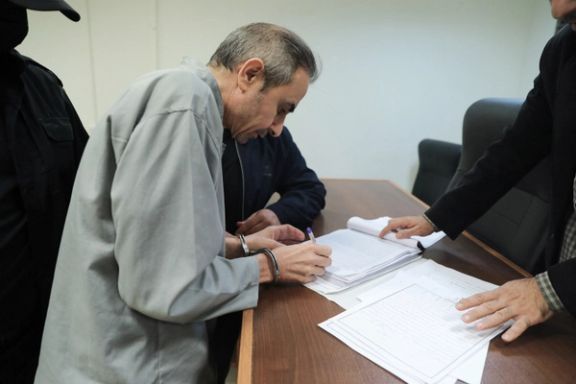
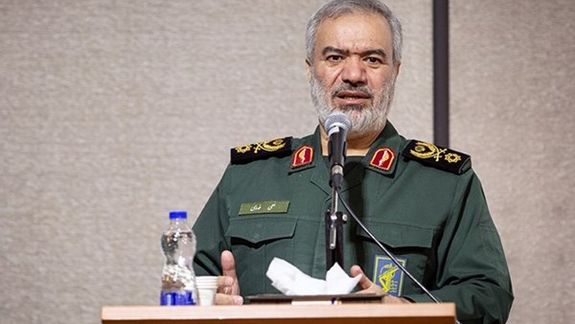
The deputy commander of Iran’s Revolutionary Guard (IRGC) has issued a veiled warning to the US Navy days after it seized an Iranian oil tanker.
Ali Fadavi said if America and its allies pose a threat to Iranian vessels the Islamic Republic will be hard on them.
Speaking on Sunday, he said that “all the enemies admit that the power of the Islamic Revolution has defeated them, and they do not dare to pose a threat when Iran is concerned.”
His comments come as sources told Reuters last week that the US confiscated an Iranian oil tanker at sea in a sanctions enforcement operation.
Iran seized another oil-laden tanker in retaliation on Thursday, at least five days after the US Navy seizure, according to maritime security firm Ambrey.
Well-placed sources who declined to be identified due to the sensitivity of the matter said Washington took control of the oil cargo aboard the Marshall Islands tanker Suez Rajan after securing an earlier court order. The tanker's last reported position was near southern Africa on April 22, ship tracking data showed.
The US Navy said Iran seized a Marshall Islands-flagged tanker in the Gulf of Oman on April 27.
In the latest escalation in a series of attacks on commercial vessels since 2019, Iran seized a second oil tanker on Wednesday in Persian Gulf waters.
However, TankersTrackers.com said the seizure of the Panama-flagged vessel Niovi was “ entirely staged”, “given the tanker’s history of receiving Iranian oil during the sanctions era as well as being currently empty of cargo”.
In 2020, Washington confiscated four cargoes of Iranian fuel aboard foreign ships that were bound for Venezuela and transferred them with the help of undisclosed foreign partners onto two other ships which then sailed to the US.
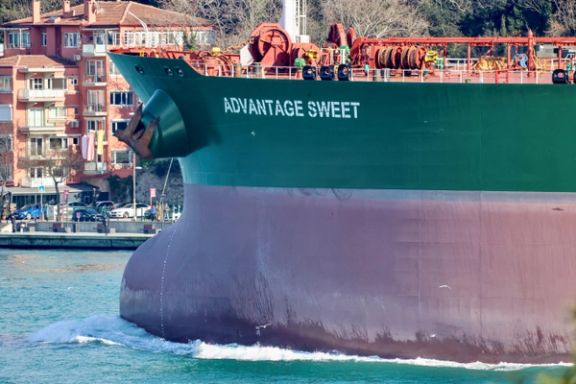
Satellite images analyzed on Sunday by The Associated Press show two oil tankers recently seized by Iran off the coast of one of its key port cities on the strategic Strait of Hormuz.
The photos from Planet Labs PBC showed the Advantage Sweet and the Niovi anchored just south of Bandar Abbas near a naval base in the port city in Iran's Hormozgan province on Saturday.
Their capture represents just the latest ship seizure conducted by Iran amid tensions with the West over its rapidly advancing nuclear programme, though it appears the two ships may have been taken for different reasons.
Iran seized the Marshall Islands-flagged Advantage Sweet, staffed by 23 Indians and one Russian, on April 27 as it travelled in the Gulf of Oman.
Tehran claimed the vessel had struck another ship, though tracking data for the Advantage Sweet showed no erratic behaviour on its trip.
Iran has made claims in the past over ship seizures to cover for the vessels being taken to use as pawns in negotiations with the West.
The Advantage Sweet carried Kuwaiti crude oil for American energy firm Chevron Corp. of San Ramon, California, at the time of its capture.
The Niovi, a Panama-flagged tanker, was seized by Iran's paramilitary Revolutionary Guard on Wednesday as it left a dry dock in Dubai, United Arab Emirates, bound for Fujairah on the UAE's eastern coast.
Iran has said it seized the Niovi over an unspecified court order in Tehran.
The managers of the Niovi did not respond to repeated telephone calls for comment.
The Greek Coast Guard have said the Niovi was staffed by Greek, Filipino and Sri Lanka sailors.
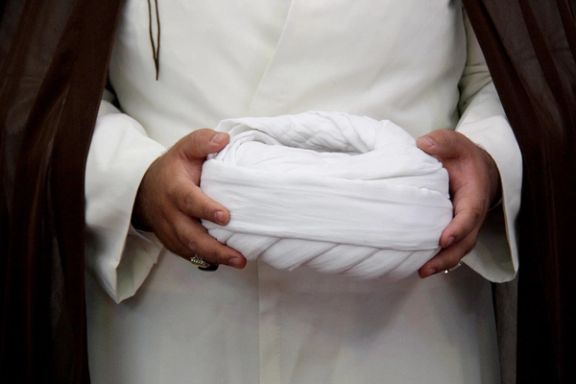
A cleric was stabbed on Saturday night in central Markazi province in the latest of a series of attacks on the clergy in Iran.
The cleric in the village of Ahmadabad was taken to hospital after being wounded by his assailant, a young man in his twenties, according to police.
The IRGC-affiliated Fars News Agency quoted police officials as claiming that the attacker was a “mentally ill person”.
Attacks on clerics have risen in Iran in recent weeks.
In late April, a former Khamenei aide associated with the mass executions of the 1980s was assassinated in a bank in the northern city of Babolsar.
He was the most senior clergyman killed in months of unrest that has rocked the country since the death in custody last September of Mahsa Amini, a 22-year-old woman who had been arrested for not wearing hijab.
After the senior cleric’s death, some reports said he was in the bank to withdraw 42 billion rials (nearly 90,000 USD) in cash, but the branch manager of Mazandaran National Bank said he wanted to transfer 42 million rials (almost 90 USD).
Tehran police announced on April 27 that a manhunt was underway to find a driver involved in the attempted murder of a cleric in the capital.
Three day later, media close to the Revolutionary Guard said two more clerics were targeted by a driver in the Iranian religious city of Qom.
A vehicle ran over the two clerics injuring them while the driver came out of his vehicle and stabbed one of them.
Since the 1979 revolution, the clergy have gained increasing power, but discontent has risen in recent years, particularly amid waves of protests over economic, political, and civil rights issues.
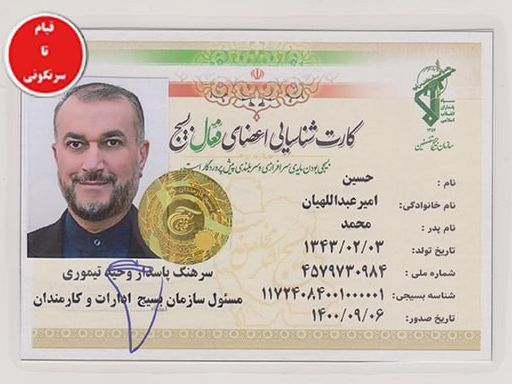
An Iranian group has hacked into the Islamic Republic’s foreign ministry servers, disabling 210 sites and online services and leaking a large batch of documents.
The hacktivist group ‘Uprising till Overthrow', affiliated with the Albania-based opposition Mujahideen-e Khalq (MEK) group, released hundreds of identification documents, minutes of meetings, the ministry’s correspondence, phone numbers of ministry officials, and the names of 11,000 employees of the foreign ministry, among others.
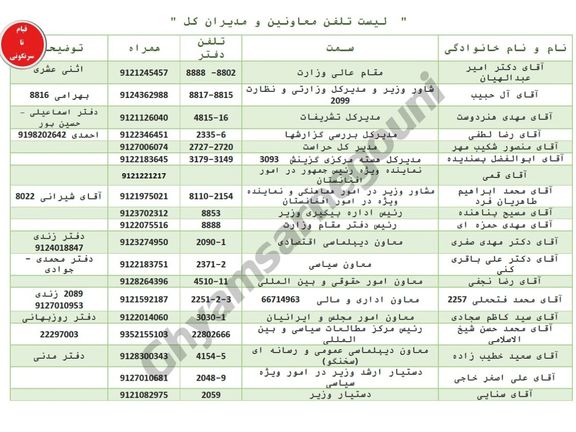
According to the telegram channel of the hackers, all the sites related to the ministry such as the Islamic Republic’s embassies, and affiliated organizations were targeted, showing a landing page with photos of the leaders of MEK as well as photos of Iran’s Supreme Leader Ali Khamenei and President Raisi with red crosses over them.
Also on the page, there were slogans of “Death to Khamenei” and “Hail to Rajavi”, the current leader of the opposition group. “There is a great revolution underway in Iran. The uprising will continue until the palace of oppression is demolished. Iran’s democratic revolution will be victorious,” read the message on the pages. Most of the pages were down midday on Sunday.
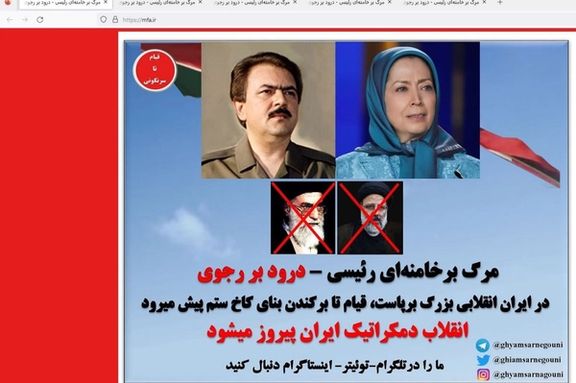
The ‘Uprising till Overthrow' had already hacked and deactivated several regime’s websites and services. In June 2022, it hacked over 5,000 security cameras of state bodies and 150 websites belonging to Tehran Municipality, displaying similar slogans on the websites and releasing internal data.
The hack comes after another cyberassault in March on the portal of the Ministry of Culture and Islamic Guidance (Ershad) and its affiliated websites showing the photos of the Rajavis and calling for the death of the country’s supreme leader.
Since the beginning of the current wave of protests in mid-September, several hacking groups have targeted state websites and online services. They have released numerous documents and have disrupted hundreds of surveillance cameras.
The documents leaked on Sunday also revealed the Islamic Republic’s continuous efforts and correspondence with European officials to finalize a prisoner swap deal with Belgium, which would see jailed Iranian diplomat Asadollah Assadi released in exchange for the detained Belgian aid worker Olivier Vandecasteele.
The Belgian Constitutional Court upheld a prisoner exchange treaty with Iran in March that could result in Assadi being swapped for Vandecasteele. The MEK mounted a fierce campaign against the deal, challenging the extradition.
Former Iranian embassy attaché, Asadollah Asadi, 51, is currently serving a 20-year sentence in Belgium for alleged attempted murder and involvement in terrorism for his role in plotting a bomb attack during an MEK event near Paris in 2018. Asadi, the only Iranian diplomat ever brought to trial in Europe for direct involvement in terrorism was arrested in Germany, where he did not enjoy diplomatic immunity while he was on holiday. German authorities later extradited Assadi to Belgium. He was a diplomat in Iran’s embassy in Austria.
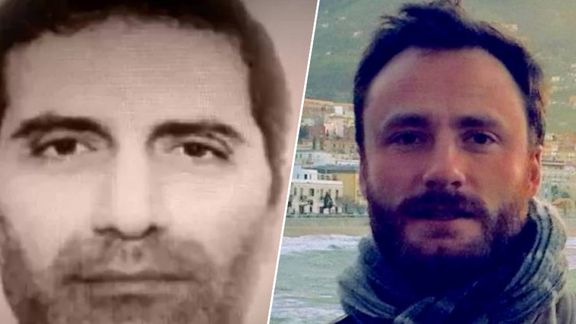
Security forces in Iran arrested aid worker Olivier Vandecasteele, 41, who has worked in a variety of humanitarian agencies since at least 2006. In January, the Islamic Republic’s judiciary sentenced Vandecasteele, who was detained in 2022, to 40 years in prison and 74 lashes for alleged “spying and cooperation with the United States, money laundering and smuggling $500,000 out of Iran.”
Iran has been accused of wrongfully detaining at least a dozen foreign and dual nationals on trumped up charges, effectively as hostages to extract concessions from Western governments. Most of them are held on spurious spying charges.